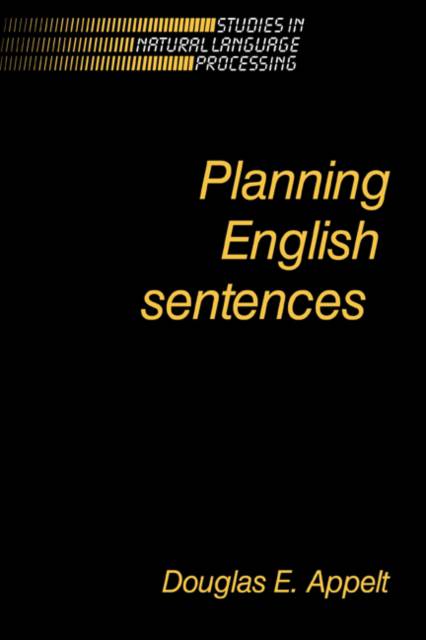
- Afhalen na 1 uur in een winkel met voorraad
- Gratis thuislevering in België vanaf € 30
- Ruim aanbod met 7 miljoen producten
- Afhalen na 1 uur in een winkel met voorraad
- Gratis thuislevering in België vanaf € 30
- Ruim aanbod met 7 miljoen producten
Zoeken
Omschrijving
This book is an investigation into the problems of generating natural language utterances to satisfy specific goals the speaker has in mind. It is thus an ambitious and significant contribution to research on language generation in artificial intelligence, which has previously concentrated in the main on the problem of translation from an internal semantic representation into the target language. Dr. Appelt's approach, based on a possible-worlds semantics of an intensional logic of knowledge and action, enables him to develop a formal representation of the effects of illocutionary acts and the speaker's beliefs about the hearer's knowledge of the world. The theory is embodied and illustrated in a computer system, KAMP (Knowledge and Modalities Planner), described in the book. Dr. Appelt's work thus has important applications to the design of interactive computer systems, multiagent planning systems and the planning of knowledge acquisition.
Specificaties
Betrokkenen
- Auteur(s):
- Uitgeverij:
Inhoud
- Aantal bladzijden:
- 184
- Taal:
- Engels
- Reeks:
Eigenschappen
- Productcode (EAN):
- 9780521438032
- Verschijningsdatum:
- 26/06/1992
- Uitvoering:
- Paperback
- Formaat:
- Trade paperback (VS)
- Afmetingen:
- 153 mm x 227 mm
- Gewicht:
- 276 g

Alleen bij Standaard Boekhandel
+ 144 punten op je klantenkaart van Standaard Boekhandel
Beoordelingen
We publiceren alleen reviews die voldoen aan de voorwaarden voor reviews. Bekijk onze voorwaarden voor reviews.







